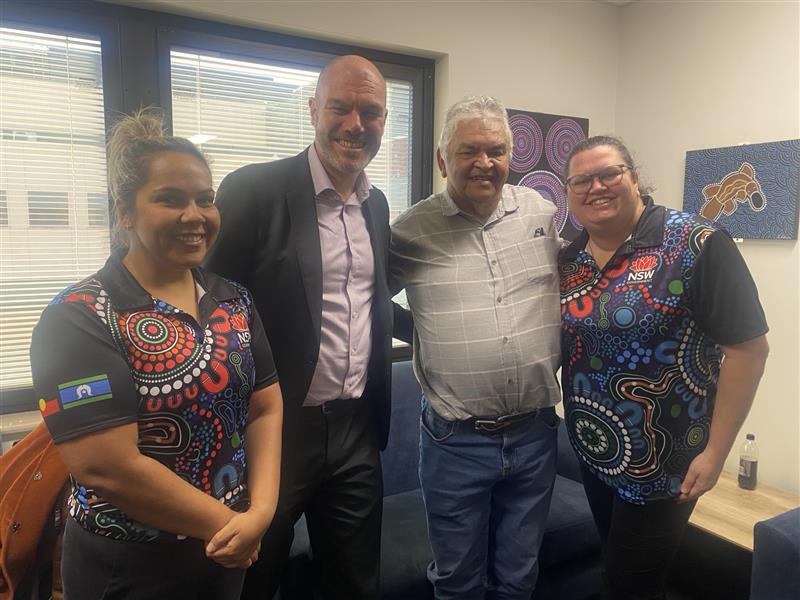National Reconciliation Week: Bridging now to next
This week, we are marking two important events in the journey to reconciliation with Aboriginal and Torres Strait Islander people: National Sorry Day (26 May) and National Reconciliation Week (27 May to 3 June).
Events are being held across our sites – an opportunity for staff to come together and reflect on the ways we can work with Aboriginal people to bring about healing, provide culturally-safe care, and achieve true reconciliation.
National Sorry Day is a time to remember and acknowledge Aboriginal and Torres Strait Islander people who were forcibly removed from their families and communities.
In 2022, NSW Health Secretary Susan Pearce apologised to Stolen Generations survivors, acknowledging the role that NSW Health played in removing Aboriginal children from their families. Susan Pearce’s apology is inscribed on plaques across our sites.
“National Sorry Day is about honouring Stolen Generations survivors and the incredible resilience and strength our elders continue to show,” says Skye Parsons, Director of Aboriginal Health (pictured left).
“The healthcare system remains a place of trauma and distrust for many Aboriginal people, and we must all take action to change that.”
National Reconciliation Week and this year’s theme, Bridging Now to Next, invites all Australians to step forward together and allow past lessons to guide us on the path to reconciliation. The week commemorates two major milestones in the reconciliation journey in Australia: The 1967 referendum and the Mabo Decision.
In the referendum, more than 90 per cent of Australian voters voted ‘yes’ for Aboriginal and Torres Strait Islander people to be counted in the census; and allowed the government to make laws for Aboriginal and Torres Strait Islander people. The Mabo Decision, handed down in the High Court on 3 June 1992, recognised the existence of native title for Aboriginal and Torres Strait Islander people.
“This week is about coming together, putting our words into action, and working with Aboriginal people as partners in care,” said Skye.
“We are proud to be embedding cultural safety into all aspects of care we provide, through Healthy Mob, Strong Community: SESLHD’s Aboriginal Health Plan 2024-2026.”
Published 28 May 2025
